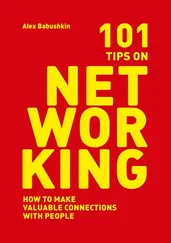For many centuries, nobles and magnates supported artists, musicians and authors so that their creative works would be dedicated to them.
Libraries and museums owe their richest collections to people who cannot bear to think that their names might perish from the memory of the race. The New York Public Library has its Astor and Lenox collections. The Metropolitan Museum perpetuates the names of Benjamin Altman and J. P. Morgan. And nearly every church is beautified by stained-glass windows commemorating the names of their donors. Many of the buildings on the campus of most universities bear the names of donors who contributed large sums of money for this honor.
Most people don't remember names, for the simple reason that they don't take the time and energy necessary to concentrate and repeat and fix names indelibly in their minds. They make excuses for themselves; they are too busy.
But they were probably no busier than Franklin D. Roosevelt, and he took time to remember and recall even the names of mechanics with whom he came into contact.
To illustrate: The Chrysler organization built a special car for Mr. Roosevelt, who could not use a standard car because his legs were paralyzed. W. F. Chamberlain and a mechanic delivered it to the White House. I have in front of me a letter from Mr. Chamberlain relating his experiences. "I taught President Roosevelt how to handle a car with a lot of unusual gadgets, but he taught me a lot about the fine art of handling people.
"When I called at the White House," Mr. Chamberlain writes, "the President was extremely pleasant and cheerful. He called me by name, made me feel very comfortable, and particularly impressed me with the fact that he was vitally interested in things I had to show him and tell him. The car was so designed that it could be operated entirely by hand. A crowd gathered around to look at the car; and he remarked: 'I think it is marvelous. All you have to do is to touch a button and it moves away and you can drive it without effort. I think it is grand - I don't know what makes it go. I'd love to have the time to tear it down and see how it works.'
"When Roosevelt's friends and associates admired the machine, he said in their presence: 'Mr. Chamberlain, I certainly appreciate all the time and effort you have spent in developing this car. It is a mighty fine job.' He admired the radiator, the special rear-vision mirror and clock, the special spotlight, the kind of upholstery, the sitting position of the driver's seat, the special suitcases in the trunk with his monogram on each suitcase. In other words, he took notice of every detail to which he knew I had given considerable thought. He made a point of bringing these various pieces of equipment to the attention of Mrs. Roosevelt, Miss Perkins, the Secretary of Labor, and his secretary. He even brought the old White House porter into the picture by saying, 'George, you want to take particularly good care of the suitcases.'
"When the driving lesson was finished, the President turned to me and said: 'Well, Mr. Chamberlain, I have been keeping the Federal Reserve Board waiting thirty minutes. I guess I had better get back to work.'
"I took a mechanic with me to the White House. He was introduced to Roosevelt when he arrived. He didn't talk to the President, and Roosevelt heard his name only once. He was a shy chap, and he kept in the background. But before leaving us, the President looked for the mechanic, shook his hand, called him by name, and thanked him for coming to Washington. And there was nothing perfunctory about his thanks. He meant what he said. I could feel that.
"A few days after returning to New York, I got an autographed photograph of President Roosevelt and a little note of thanks again expressing his appreciation for my assistance. How he found time to do it is a mystery to me ."
Franklin D. Roosevelt knew that one of the simplest, most obvious and most important ways of gaining good will was by remembering names and making people feel important - yet how many of us do it?
Half the time we are introduced to a stranger, we chat a few minutes and can't even remember his or her name by the time we say goodbye.
One of the first lessons a politician learns is this: "To recall a voter's name is statesmanship. To forget it is oblivion."
And the ability to remember names is almost as important in business and social contacts as it is in politics.
Napoleon the Third, Emperor of France and nephew of the great Napoleon, boasted that in spite of all his royal duties he could remember the name of every person he met.
His technique? Simple. If he didn't hear the name distinctly, he said, "So sorry. I didn't get the name clearly." Then, if it was an unusual name, he would say, "How is it spelled?"
During the conversation, he took the trouble to repeat the name several times, and tried to associate it in his mind with the person's features, expression and general appearance.
If the person was someone of importance, Napoleon went to even further pains. As soon as His Royal Highness was alone, he wrote the name down on a piece of paper, looked at it, concentrated on it, fixed it securely in his mind, and then tore up the paper. In this way, he gained an eye impression of the name as well as an ear impression.
All this takes time, but "Good manners," said Emerson, "are made up of petty sacrifices."
The importance of remembering and using names is not just the prerogative of kings and corporate executives. It works for all of us. Ken Nottingham, an employee of General Motors in Indiana, usually had lunch at the company cafeteria. He noticed that the woman who worked behind the counter always had a scowl on her face. "She had been making sandwiches for about two hours and I was just another sandwich to her. I told her what I wanted. She weighed out the ham on a little scale, then she gave me one leaf of lettuce, a few potato chips and handed them to me.
"The next day I went through the same line. Same woman, same scowl. The only difference was I noticed her name tag. I smiled and said, 'Hello, Eunice,' and then told her what I wanted. Well, she forgot the scale, piled on the ham, gave me three leaves of lettuce and heaped on the potato chips until they fell off the plate."
We should be aware of the magic contained in a name and realize that this single item is wholly and completely owned by the person with whom we are dealing and nobody else. The name sets the individual apart; it makes him or her unique among all others. The information we are imparting or the request we are making takes on a special importance when we approach the situation with the name of the individual. From the waitress to the senior executive, the name will work magic as we deal with others.
~~~~~~~~~~
Principle 3 - Remember that a person's name is to that person the sweetest and most important sound in any language.
Chapter 4 - An Easy Way To Become A Good Conversationalist
Table of Contents
Some time ago, I attended a bridge party. I don't play bridge - and there was a woman there who didn't play bridge either. She had discovered that I had once been Lowell Thomas' manager before he went on the radio and that I had traveled in Europe a great deal while helping him prepare the illustrated travel talks he was then delivering. So she said: "Oh, Mr. Carnegie, I do want you to tell me about all the wonderful places you have visited and the sights you have seen."
As we sat down on the sofa, she remarked that she and her husband had recently returned from a trip to Africa. "Africa!" I exclaimed. "How interesting! I've always wanted to see Africa, but I never got there except for a twenty-four-hour stay once in Algiers. Tell me, did you visit the big-game country? Yes? How fortunate. I envy you. Do tell me about Africa."
Читать дальше












